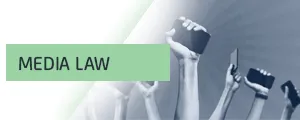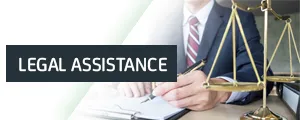The International\r\nFoundation for the Protection of Freedom of Speech \"Adil Soz\"\r\nconducted a study of the situation with the right to freedom of\r\nexpression, receipt and dissemination of information in Kazakhstan in\r\nNovember 2018.
\r\n\r\nIt reports: \r\n
\r\n\r\n- Joint\r\norder of the Ministry of Information and Communication (MIC) and\r\nMinistry of the National Economy of the Republic of Kazakhstan\r\napproved of risk assessment criteria and checklist for compliance\r\nwith the legislation of the Republic of Kazakhstan on mass media.
\r\nThe\r\nJoint Order of the Minister of Information and Communications of the\r\nRepublic of Kazakhstan No. 473 of November 9, 2018 and the Minister\r\nof National Economy of the Republic of Kazakhstan of November 15,\r\n2018 No. 69 “On approval of risk assessment criteria and checklist\r\nfor compliance with the legislation of the Republic of Kazakhstan on\r\nmass media” was approved.The criteria are designed in accordance\r\nwith paragraph 3 of Art. 141 of the Entrepreneurial Code of the\r\nRepublic of Kazakhstan (“Grouping of subjects (objects) of control\r\nand supervision”) - on a group of subjects (objects) of “control\r\nand supervision that are subject to unscheduled inspections,\r\npreventive control and supervision with or without site visits to a\r\nsubject ( object) of control and supervision ”. Another basis for\r\nthe criteria is the Rules for the formation of the risk assessment\r\nsystem and the form of checklists by the state bodies. A risk\r\nassessment system is a set of activities carried out by a control\r\nbody with the purpose of preventive control with a visit to a control\r\nsubject (object). A checklist is a list of requirements for the\r\nactivities of control subjects (objects), the failure to comply with \r\nleads to a threat to human life and health, the environment, the\r\nlegitimate interests of individuals and legal entities, and the\r\nstate. In the course of the control of the comliance with the\r\nlegislation of the Republic of Kazakhstan on mass media“ the risk\r\nis determined by the probability of causing harm to human life or\r\nhealth, the environment, the legitimate interests of individuals and\r\nlegal entities, the property interests of the state by the activity\r\nof control subjects (objects) related with non-provision of\r\nconstitutional guarantees of the rights to freely receive information\r\nand distribute it by any methods that are not prohibited by laws,\r\nfreedom of speech and creativity, information security of \r\nindividuals, society and the state while using mass media services\".
\r\n«Adil\r\nSoz» has directed an inquiry regarding the said joint order to the\r\nministry of information and communications:
\r\n“The\r\norder contains seven tables in the appendices that contain the\r\nrequirements that should be checked by representatives of the\r\nauthorized body in the course of regular and unscheduled inspections\r\nof the activities of media owners.
\r\nThe\r\ntext of the order raises some questions: \r\n
\r\n1.\r\nWhy TV and radio companies are not mentioned in the order? Does this\r\nmean that a special order will be issued regarding these types of\r\nmedia?
\r\n2.\r\nWhy are the owners of periodical print media considered to be media\r\nof a higher risk, and the owners of online publications and Internet\r\nresources are not classified as objects with a high degree of risk?\r\nIs a printed word more powerful than an online one? The distribution\r\nterritory of online publications and Internet resources is not\r\nlimited, unlike that of printed media. Consequently, information\r\npublished in print media has a much smaller area of distribution.\r\nPoint 7 of Appendix No. 1 to the order provides that inspections of\r\nsubjects (objects) with a high degree of risk are carried out WITH A\r\nVISIT to the subject (object). It is clear that visiting the owner of\r\na printed media is much easier than the owners of online editions and\r\nInternet resources! It is logical to assume that the larger the area\r\nof information dissemination, the higher is risk.We hope that the\r\nauthorized body will comment on this provision.
\r\n3.\r\nParagraph 8 of Appendix No. 1 of the order provides that one of a\r\nserious violation is “Publishing information about vacancies that\r\ncontains discriminatory requirements ”. However, in accordance with\r\n Art. 20 of the Law of the Republic of Kazakhstan \"On\r\nAdvertising\" and Art. 423 of the Administrative Code of the\r\nRepublic of Kazakhstan, the distributor of advertisement, i.e. media\r\nis responsible only for advertising in non-specialized print media\r\ndesigned for medical and pharmaceutical workers narcotic drugs and\r\npsychotropic substances included in the list of narcotic drugs,\r\npsychotropic substances and precursors that are subject to control in\r\nthe Republic of Kazakhstan.Therefore, media as a distributor of\r\nadvertisement is not responsible for the dissemination of information\r\nabout vacancies containing discriminatory requirements. So,\r\nwhy was this item included to the checklist?
\r\n\r\n4. Point 9 of Appendix No. 1 of the order mentions another seroius\r\nviolation by the media: “Advertising activities of a financial\r\n(investment) pyramid”. This criterion is hard to agree with. How\r\ncan a controlling person determine that the advertised company is a\r\npyramid? Practice shows that law enforcement agencies work hard in\r\norder to ascertain a fact that an entity is a “pyramid” and then\r\na court hasto recognized this fact. We would like the authorized\r\nbody to explain this point.
\r\n\r\n5. Paragraph 12 of Appendix No. 1 of the order contains such a\r\ncriterion: “Advertising of goods (works, services) prohibited for\r\nproduction and sale in accordance with the legislation of the\r\nRepublic of Kazakhstan”. First, media workers may not know which\r\nthese goods / works / services are prohibited. The advertiser should\r\nknow this. The responsibility for the content of advertisements is\r\nstipulated by the said above Art. 20 of the Law of the Republic of\r\nKazakhstan \"On Advertising\" and Art. 423 of the\r\nAdministrative Code.
\r\n\r\n6. Clause 13 of Appendix No. 1 of the order contains the criterion:\r\n“Placing in the mass media letters from readers, including\r\ninformation posted by users on an Internet resource, that contain\r\ninformation prohibited by the laws of the Republic of Kazakhstan\r\n(propaganda or agitation of cruelty and violence, social, racial,\r\nnational, religious, class and tribal superiority, disclosure of\r\ninformation constituting state secrets or other secrets protected by\r\nlaw, dissemination of information promoting suicide, disclosing\r\ntechnical methods and tactics of anti-terrorist operations during\r\ntheir conduct, promotion of narcotic drugs, psychotropic substances,\r\ntheir analogues and precursors, the distribution of television and\r\nradio programs, television and radio channels and films demonstrating\r\npornography, sex and erotics, the use of mass information in order to\r\nviolate rules of election campaigns, activity of foreigners,\r\nstateless persons, foreign legal entities and international\r\norganizations aimed to impede and (or) promote election of certain\r\ncandidates, political parties, achieving a certain result of\r\nelections, election campaigning at the period when it is prohibited,\r\nforcing to participate or refuse to participate in a strike,\r\nviolation of the legislation of the Republic of Kazakhstan on the\r\nprocedure for organizing and conducting peaceful assemblies, rallies,\r\nprocessions, pickets and demonstrations, on copyright and related\r\nrights on the Internet) ”.Until today only court decided whether\r\nanarticlewritten by a journalist contained any evidence of\r\nincitement to hatred, propaganda and agitation of cruelty and\r\nviolence, etc. Such conclusions used to basied of experts eviences of\r\nspecialists. It turns out that an employee of the authorized body \r\nwill determine by guess and by gosh if there is any prohibited\r\ninformation or copyright infringement in the material? It is obvious\r\nthat a reviewing officer of the authorized body does not have such\r\npower and cannot have it at all ”.
\r\n- On November\r\n15 the website of the Kostanay weekly \"Nasha Gazeta\" became\r\nunavailable on the territory of Kazakhstan. The reasons for blocking\r\naccess are unknown: the editors have not received any warnings or\r\nnotices of violations from the authorized bodies, the site is not in\r\nthe list of prohibited sites of the Ministry of Information and\r\nCommunications. The technical support of the web-site hosters said\r\nthat they did not restrict the access to the internet-resource. \r\n
\r\n\r\n“The reason of the access restriction may be a series of\r\nthought-provoking articles about the regional akim, violations of\r\nthe traffic rules by his official Lexus, and articles about the\r\nresidence of the president. As for the formal reason - it can be\r\nanything. We have always written thought-provoking articles about\r\npower,” the editor-in-chief of the newspaper commented on blocking\r\nthe website. On November 16, the editorial office requested \r\nKazakhtelecom JSC and the Ministry of Information and\r\nCommunicationsto clarify the situation. On November 16, the\r\nInternational Foundation for Protection of Freedom of Speech “Adil\r\nSoz” applied to the “State Technical Service” of the National\r\nSecurity Committee of the Republic of Kazakhstan, the General\r\nProsecutor’s Office and the Ministry of Information and\r\nCommunications with a request to explain the reasons for blocking the\r\nwebsite of the Kostanay regional weekly Nasha Gazeta www.ng.kz. \r\n“Adil soz” emphasized in its request that the editorial office\r\ndid not receive any official information from government agencies\r\nabout the reasons for blocking and reminded that the laws of the\r\nRepublic of Kazakhstan “On Communications” and “On Mass Media”\r\nand a number of others clearly regulate the grounds and procedure for\r\nblocking Internet resources and the freedom of speech, while\r\nreceiving and disseminating information are protected by the\r\nConstitution of the Republic of Kazakhstan. Adil Soz asked the\r\nProsecutor General’s Office to give a proper legal assessment of\r\nthe violations if blockingthe website is found unlawful and to take\r\nmeasures to restore and protect the legal rights of the recipients of\r\ninformation. On the same day, November 16, the Vice-Minister of\r\nInformation and Communications of the Republic of Kazakhstan Nurgul\r\nMauberlinova responded to a request from the editor-in-chief of the\r\nweekly Nasha Gazeta Olga Kolokolova. According to the letter, “the\r\nMinistry didn’t make decisions on restricting access to the\r\nabove-mentioned Internet resource. Currently, the Ministry is working\r\nto clarify the reasons for the lack of access to this Internet\r\nresource. ”The Northern Regional Telecommunications Directorate\r\n(branch of Kazakhtelecom JSC) reported that the access to the website\r\nwww.ng.kz was not restricted by the network of Kazakhtelecom JSC.The\r\nKazakh Network Information Center (KazNIC), the manager for the\r\nsupport of the top-level domain name KZ, found no problems with the\r\ndomain name ng.kz. \r\n
\r\n\r\n
\r\n
\r\n- Dmitry Matveyev, a journalist from Aktobe,\r\ndeclared not guilty in libel.
\r\nOn\r\nNovember 30 Court Number 2 of Aktobe found journalist Dmitry\r\nMatveyev not guilty in charges under part 2 of article 130 of the\r\nCriminal Code of the Reublic of Kazakhstan and aquitted him for\r\nlack of corpus delicti.\r\nThe\r\ncourt also recognized Matveyev\'s right to rehabilitation and\r\ncompensation for harm caused by unlawful criminal prosecution.
\r\n\r\nAs it was reported, Irina\r\nGurko, who was sentenced to 9 years in prison in November 2016\r\ncharged the journalist for libel. The reason was the article “Lawyers\r\ncan suspected and arrested too” (“Eureka”, 11/04/2015),\r\n“A society hostess was sent to jail for 9 years” (“Eureka”,\r\n11/09/2016). Articles were based on the investigation\r\ndocuments, open trial and court verdict. Irina Gurko argued that \r\nthe journalist spread deliberately false information in\r\npublications that \"injured her honor and dignity.\"
\r\n
\r\n
\r\n- Director of the PR-agency \"Insight\r\nMedia\" Yuri Dorokhov was summoned again for questioning on the\r\ncase of disseminating false information. The case was initiated at\r\nthe request of the ex-minister of finance and state revenues Z.\r\nKakimzhanov, who demanded to bring the journalists of the Ratel.kz\r\nportal and Forbes Kazakhstan magazine to criminal liability. The\r\ndirector of a PR agency is in the status of a witness with a right to\r\ndefense.
\r\n\r\n
\r\n
\r\nOn November 21, the opening day of XI Mediakulultai, Yuri Dorokhov\r\nwas summoned for questioning. “I am summoned for questioning again\r\nto the investigator on the “case of journalists”. For almost\r\nthree months the investigators did not disturb me, I thought the case\r\nwas shelved, but it was not. At the interrogation they hinted at\r\nsomething bad for me. I do not know why - maybe someone was hoping\r\nthat I would run away. I did not run away. Amazing that I was\r\nsummoned on the day of the MediaKurultay. The first time I was\r\nsummoned for questioning on the day of the PR-forum, where I was\r\nsupposed to speak. On the MediaKurultay I was also invited as a\r\nspeaker, but I had to refuse due to the workload. But that would be\r\nquite funny. Are they deliberatly becoming more active in the “cause\r\nof journalists” on those days when our colleagues discuss the\r\ndevelopment of the industry? ”, Y. Dorokhov wrote on his Facebook\r\npage.
\r\n\r\n
\r\n
\r\n4\r\n judicial acts were issued against media and citizens in\r\nconnection with the exercise of the right to freedom of expression ,\r\nthe receipt and dissemination of information on cases of protection\r\nof honor, dignity and business reputation (including 1 cassation an1\r\nin appeal) in November. Three of them was in favor of the media,\r\njournalists and citizens.\r\n
\r\n\r\nThe following actions chrges were filed\r\nsince the beginning of the year in connection with the exercise of\r\nthe right to freedom of expression:
\r\n-\r\n48 criminal charges, including 25 in court.
\r\n\r\n- 65 claims and suits in\r\ncivil procedure. Among them, 53 claims and lawsuits for protection of\r\nhonor, dignity and business reputation. \r\n
\r\n\r\n- Claims for compensation\r\nfor non-pecuniary damage amounted to 243 million 800 thousand and 1\r\ntenge in\r\nJanuary-November. The\r\ncourts\r\ncollected\r\n540 thousand\r\ntenge.
\r\n\r\nThe monitoring was\r\ndone according to reports of the Adil Soz Foundation\'s\r\ncorrespondents and information from open sources.
\r\n\r\nHead of monitoring\r\nservice of Adil Soz Foundation Elena Tsoi
e-mail: lena@adilsoz.kz
\r\nFor all questions\r\nregarding the monitoring, you may also contact
info@adilsoz.kz
\r\n
\r\n





